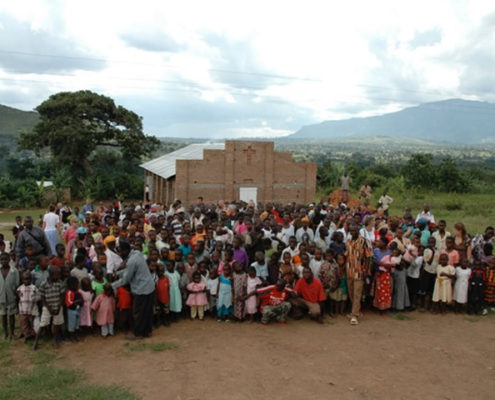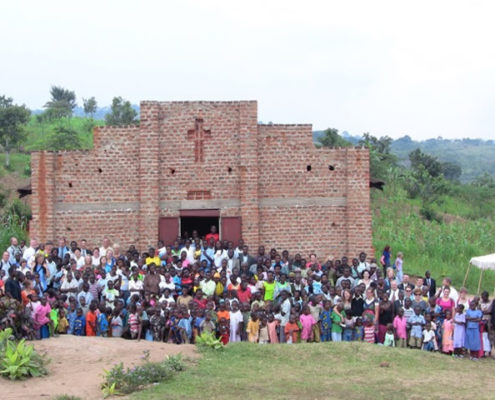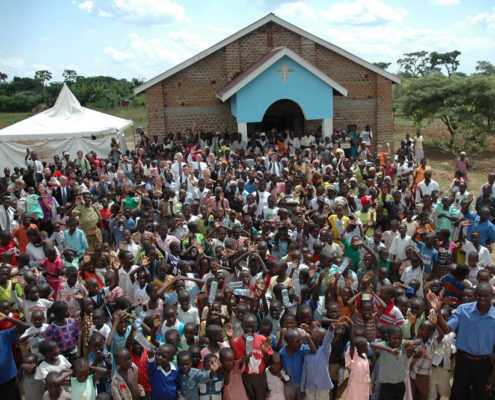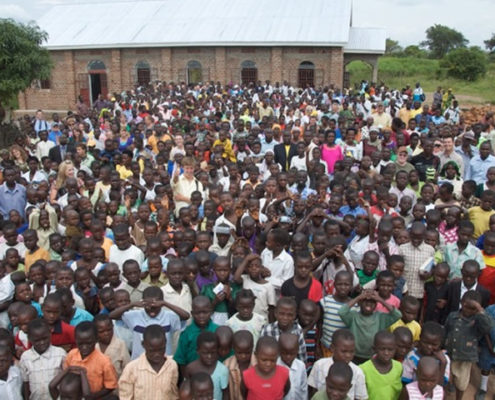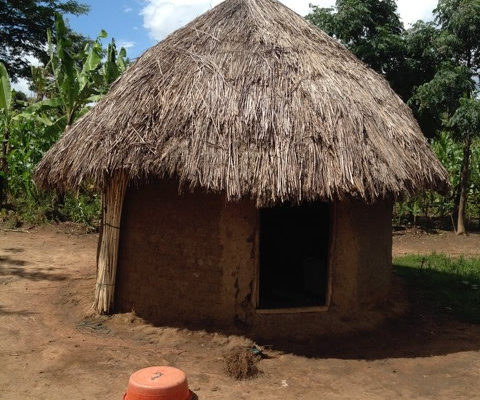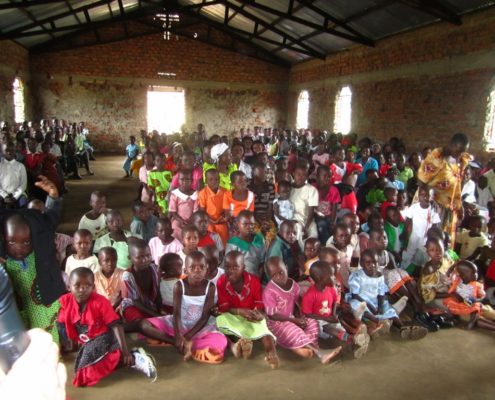What We Do
The Church
As the third pillar of our ministry (to provide the neediest of God’s children with a loving home, education and spiritual development), the local church will complete the “family”. While the mommas will love and care for the children as their own, the church will become the extended family and the place of spiritual growth. Women in the church will help look after the children and tutor them in their studies. Men from the church will spend time with the children, lead them in Bible studies and help with the care and maintenance of the home.
In most situations, the King’s Kids homes will be built on church property, adjacent to the pastors’ homes.
Hut-to-Hut Ministry
In connection with its orphan care ministry, King’s Kids Africa often leads short-term mission trips to Uganda. Generally, these teams include 10-15 people. Once in Uganda, the teams engage in teaching, discipleship training, children’s ministries, and evangelism. However, the primary focus is to go hut-to-hut through the surrounding villages to share the gospel message of Jesus Christ.
Everyone from the mission team is assigned a local translator (generally a pastor or a student from CBIT). Then, the teams (1 “missionary” and 1 translator each) walk along dirt paths and through the fields to simple mud huts along the way. At each hut, the teams introduce themselves and ask for the opportunity to speak with the families. Using a booklet (track) by Evantell titled: “May I Ask You a Question” (which is presented in both English and Swahili), the “missionaries” and their translators share the gospel message. The people of Uganda generally have a sense of God, but have never been told about Jesus. However, once they hear the Word, families are usually very quick to join the “missionary” in praying the sinner’s prayer for salvation.
This is a beautiful experience that touches and changes the lives of everyone who comes.
Fresh Water
The single biggest factor in improving the health of children is the availability of clean water. Wherever King’s Kids Africa builds an orphan home, it will ensure that fresh water (through boring a shallow or deep well, spring capping or rain water collection) and sanitary facilities (generally pit latrines) will be provided, unless otherwise available nearby.
Sustainability Programs
Sustainable development remains elusive for many African countries, including Uganda, with poverty remaining a major challenge. The lack of modern energy services is a major obstacle to sustainable development in rural Uganda, but King’s Kids Africa is committed to working alongside local communities to find solutions. King’s Kids Africa will network with other NGOs to identify and develop sustainable opportunities suitable for rural villages, including agriculture (e.g. farming and livestock) and textiles (e.g. sewing).
Local Churches


